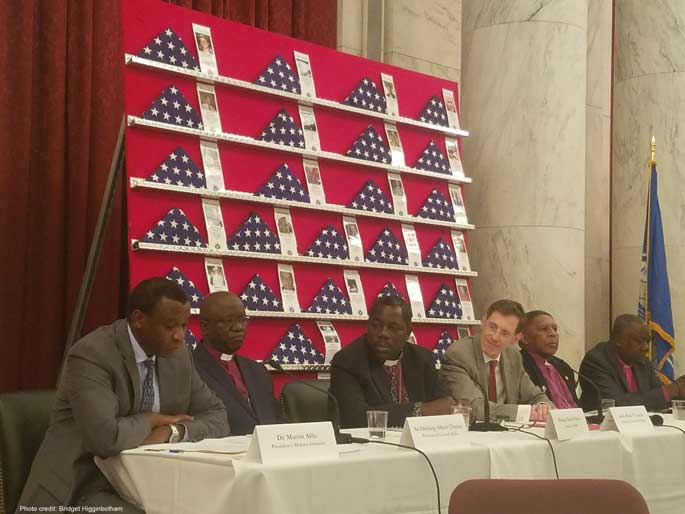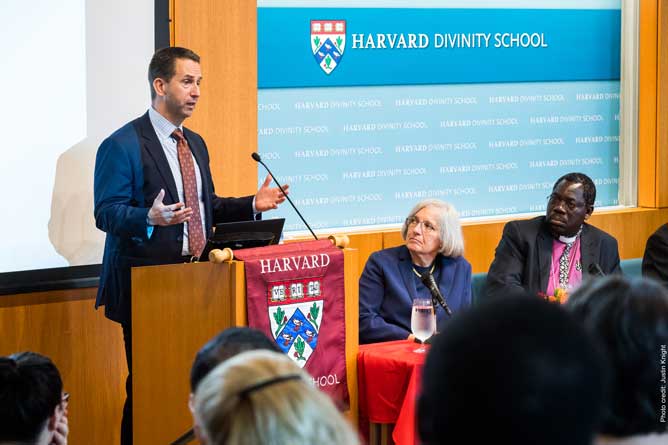
Dr. Martin Alilio speaking about PMI’s history with faith-based organizations on a panel with Anglican bishops. Photo credit: Bridget Higginbotham
When malaria tests are offered in Lusaka, Zambia, Anglican Bishop David Njovu and a village leader are often the first to be tested in order to set an example. This community-level testing and treatment is made possible in part due to investments provided by the U.S. President’s Malaria Initiative (PMI), which Bishop Njovu says has led to a “dramatic change” in the malaria situation in Zambia.
Another way the bishop helps address malaria in his community is by encouraging his priests to speak about proper malaria prevention and treatment. To keep from ostracizing people, they do not outright condemn traditional healing, but instead invite healthcare professionals to educate the community on malaria basics. Prayer coexists with modern medicine.
Bishop Njovu shared all of this during a recent multi-city tour of the U.S. and the U.K. with three other Anglican bishops from Southern Africa: Archbishop Albert Chama from Church of the Province of Central Africa, Bishop Luke Pato of the Diocese of Namibia, and Bishop André Soares of the Diocese of Angola. The visit was hosted by the J.C. Flowers Foundation as a part of the Isdell:Flowers Cross Border Malaria Initiative with the intention of encouraging policymakers to rethink the role of faith leaders and communities in the fight against malaria.
“Religious leaders and communities of faith really are integral in being able to connect individually with each person in each village and each city to really
understand how they can protect themselves from malaria and how they can help others,” Coordinator Staley told the gathered crowd.
This is thanks in part to faith communities’ established networks of volunteers and community groups, which play a pivotal role in promoting
and sustaining positive changes in the social norms, attitudes, and behaviors of their communities.
In Washington, DC, PMI Senior Malaria Technical Advisor Dr. Martin Alilio joined the bishops on a panel at the Russell Senate Building. Alilio emphasized how PMI has made a deliberate effort since the beginning to support community and faith-based organizations to carry out malaria prevention and control activities. In some PMI partner countries, such as Democratic Republic of Congo, up to 70 percent of malaria treatment services
are provided by health facilities owned by faith-based organizations.
“As countries continue to make progress towards malaria elimination, the work of faith-based organizations will become even more vital in reaching the hard to reach communities,” Alilio said. “Faith-based organizations allow for local ownership, capacity building, accountability, and sustainability.”

